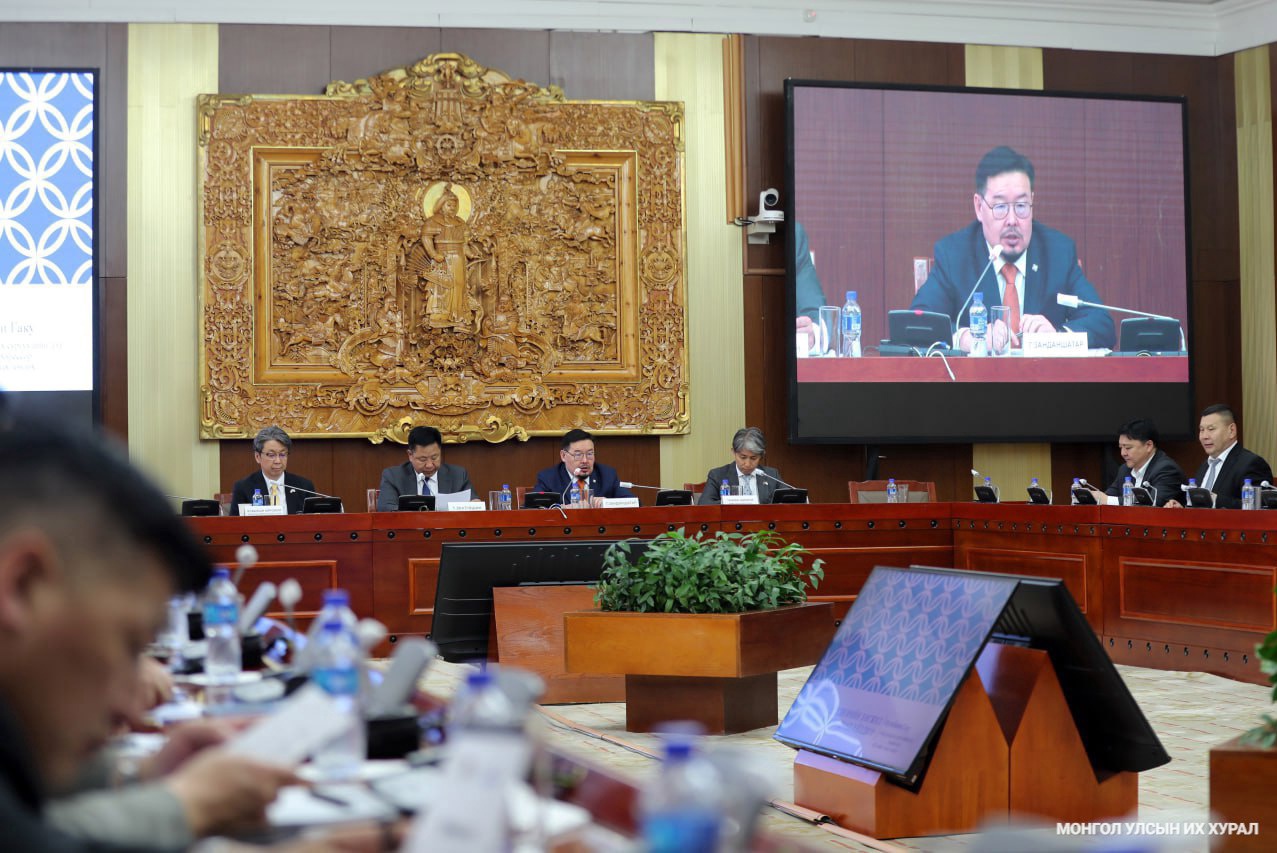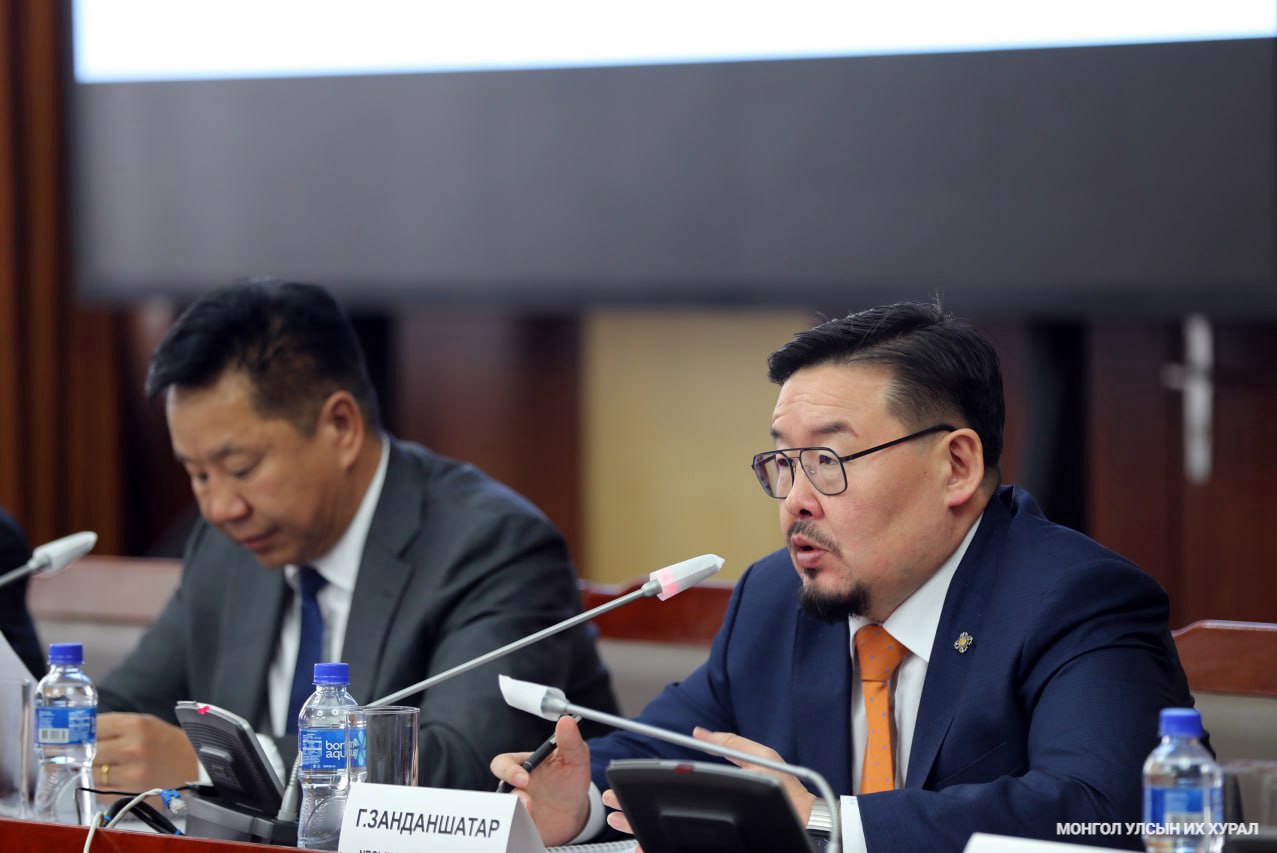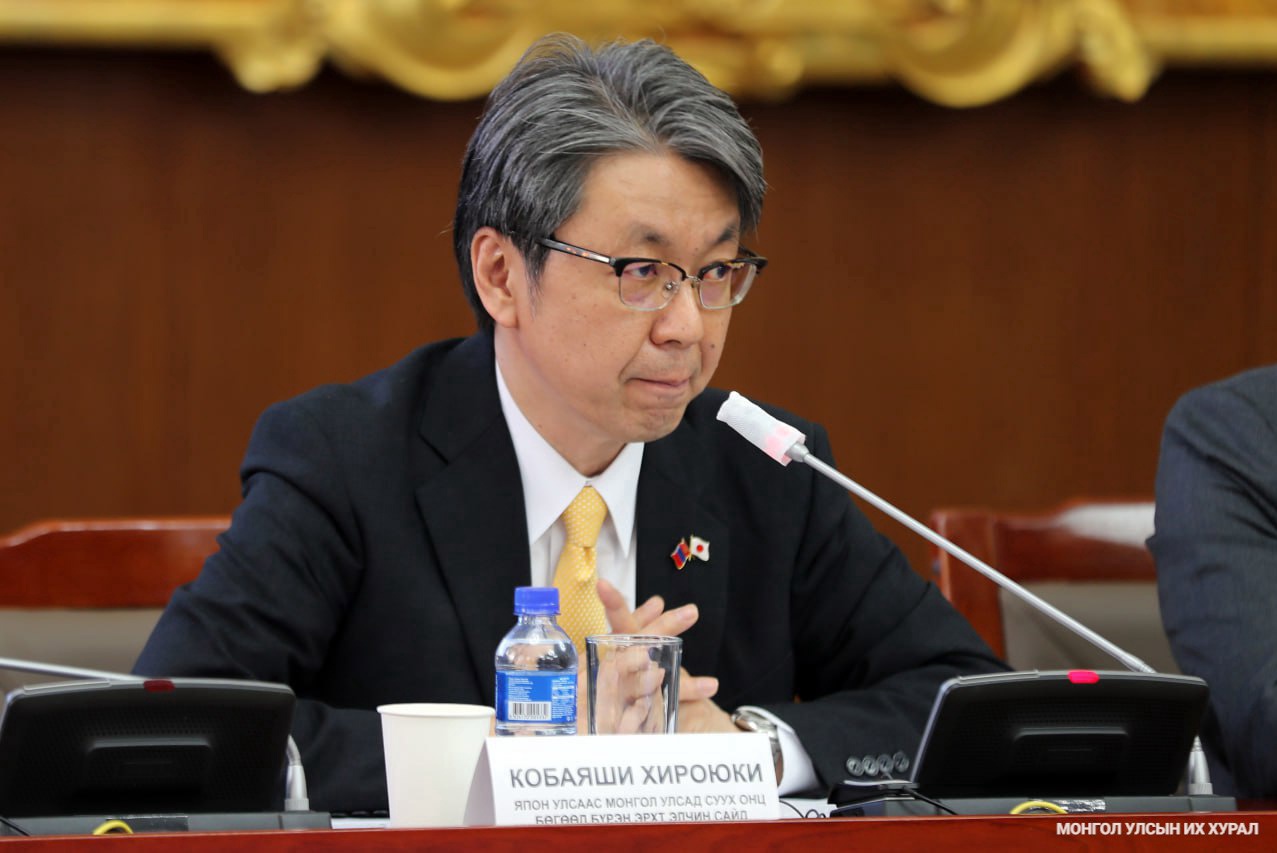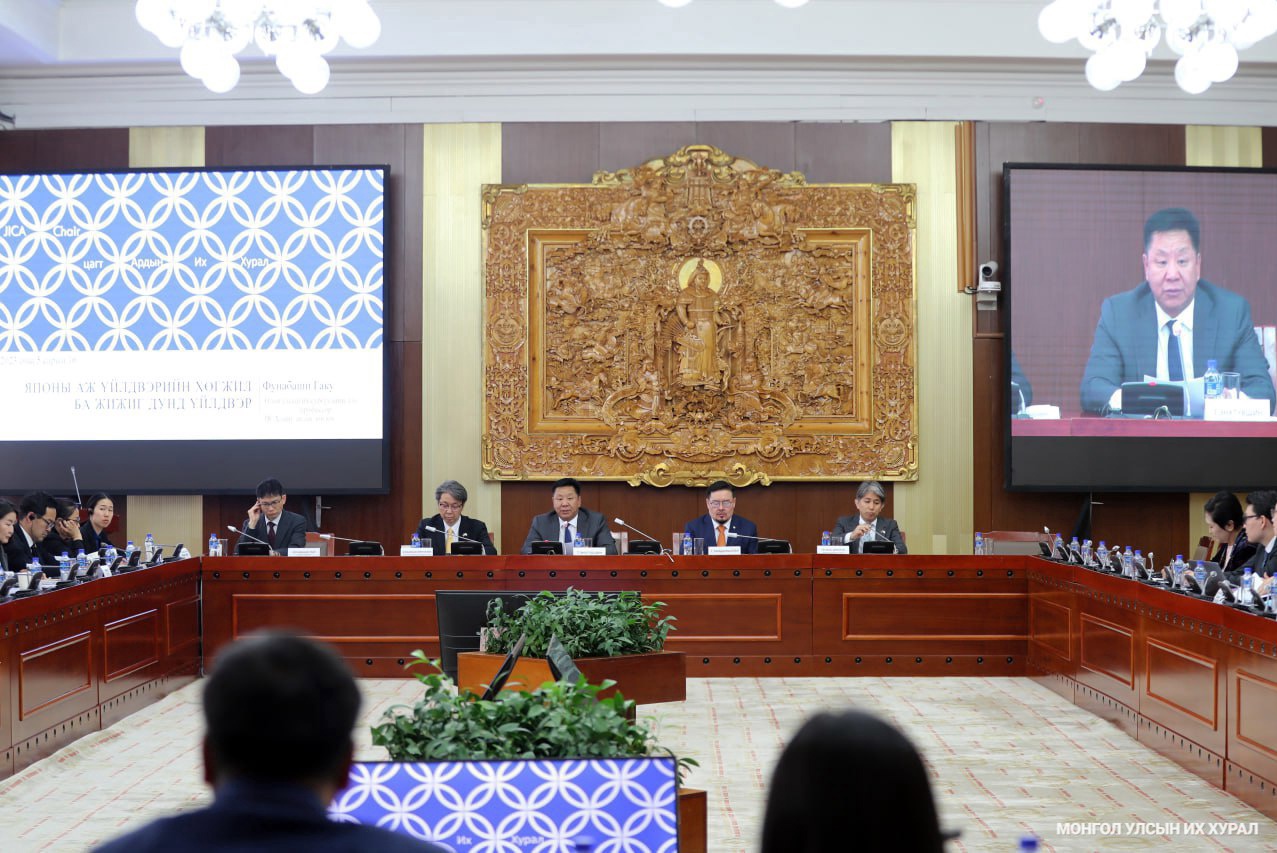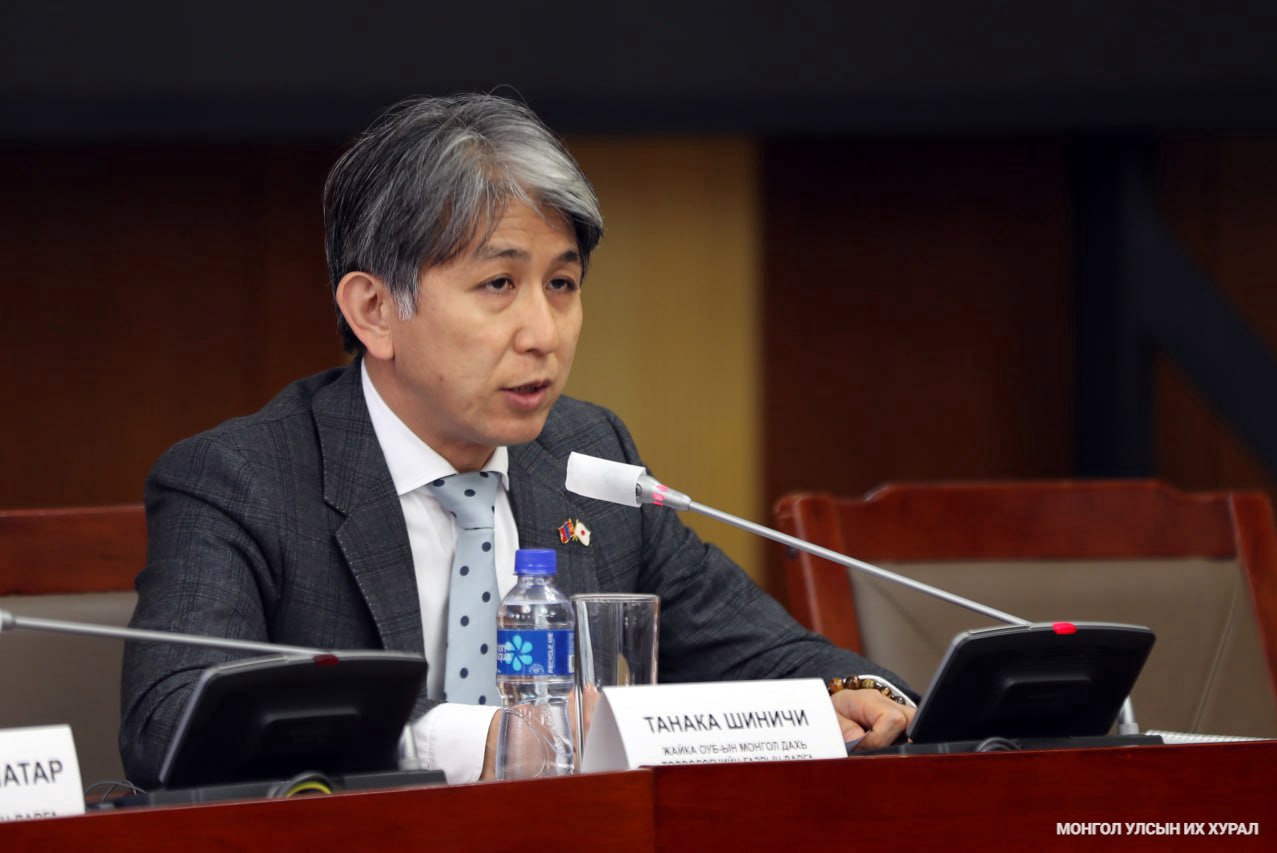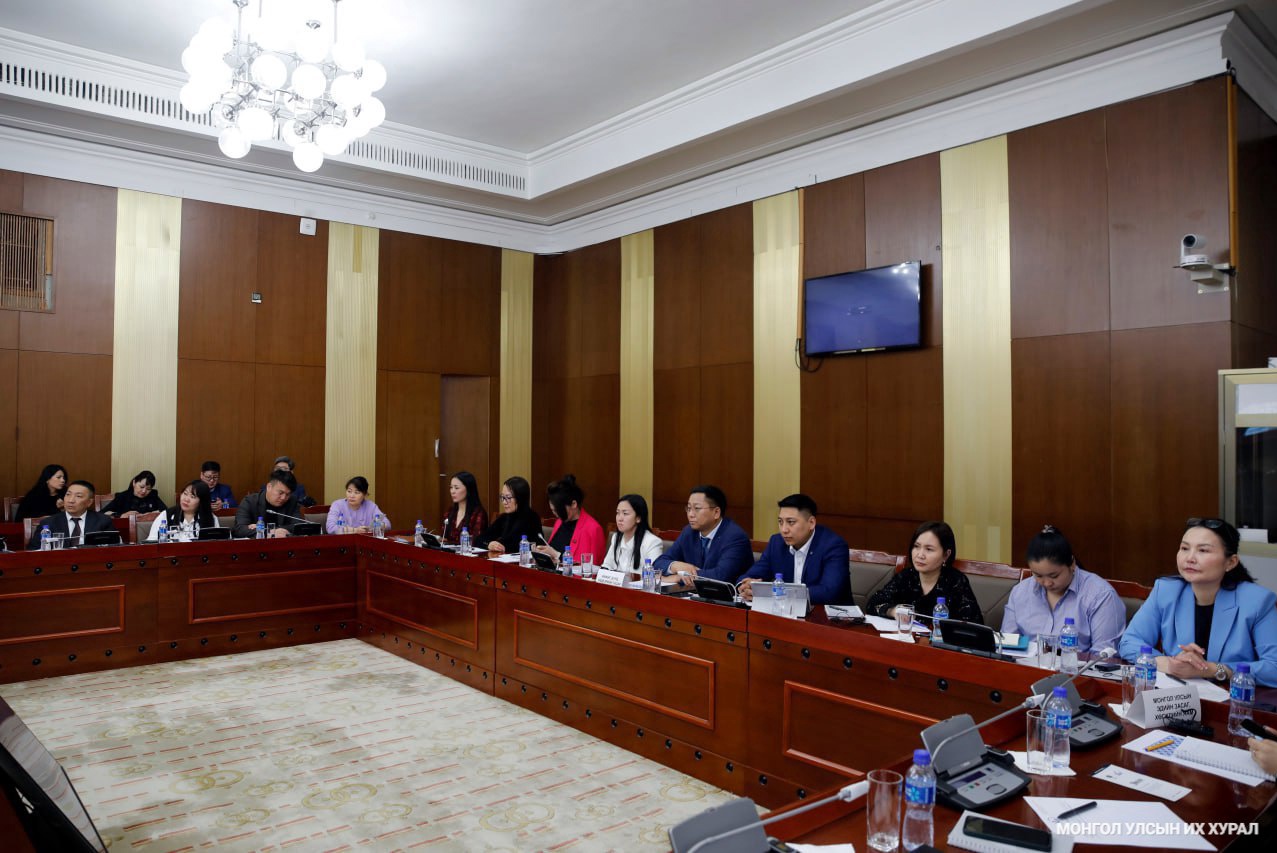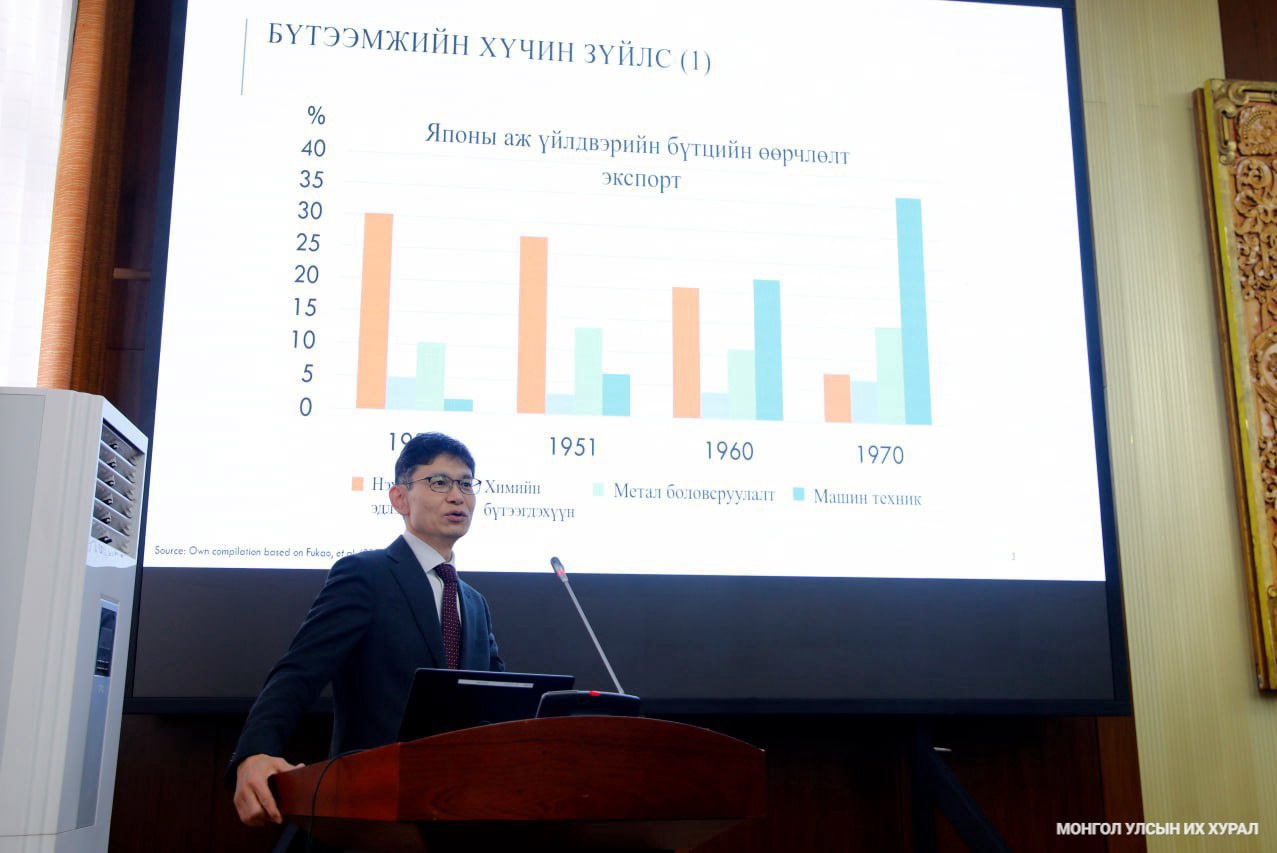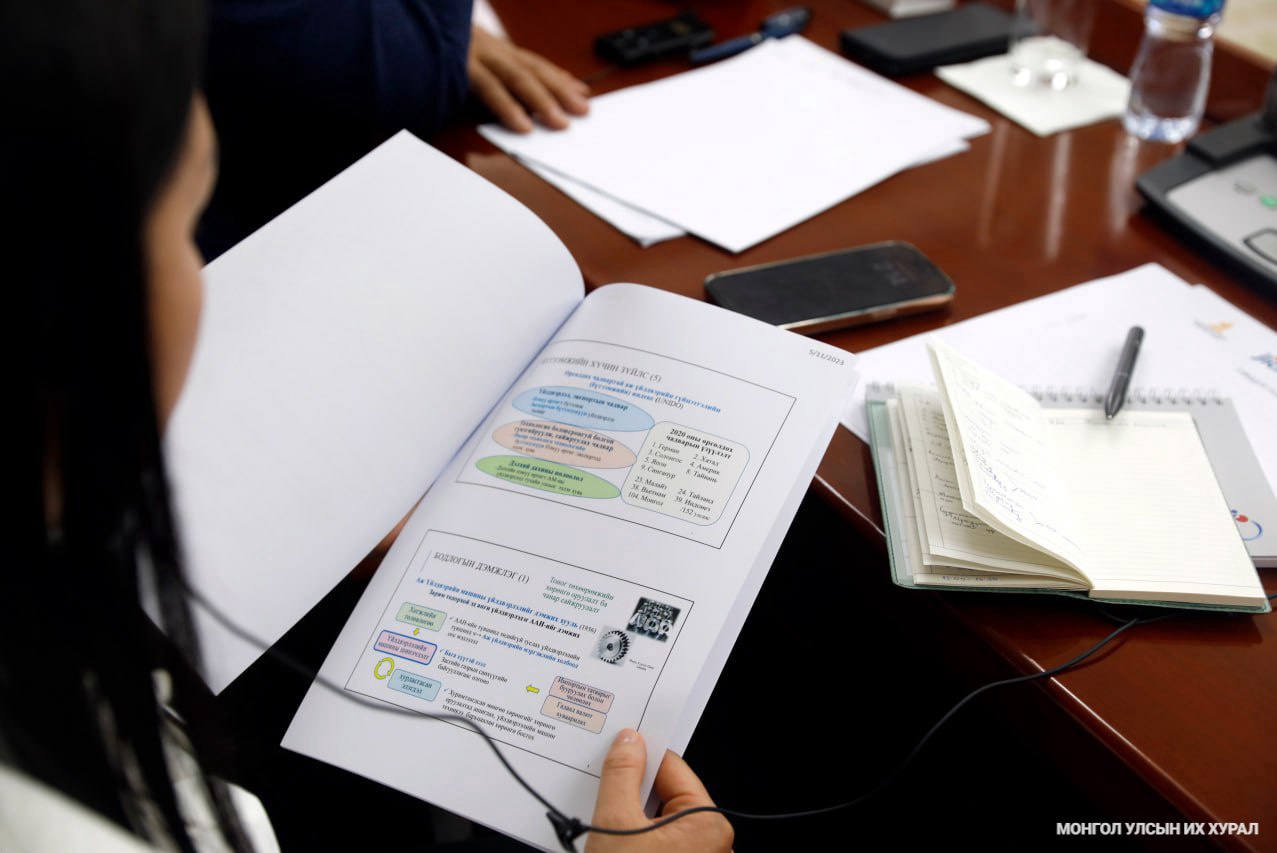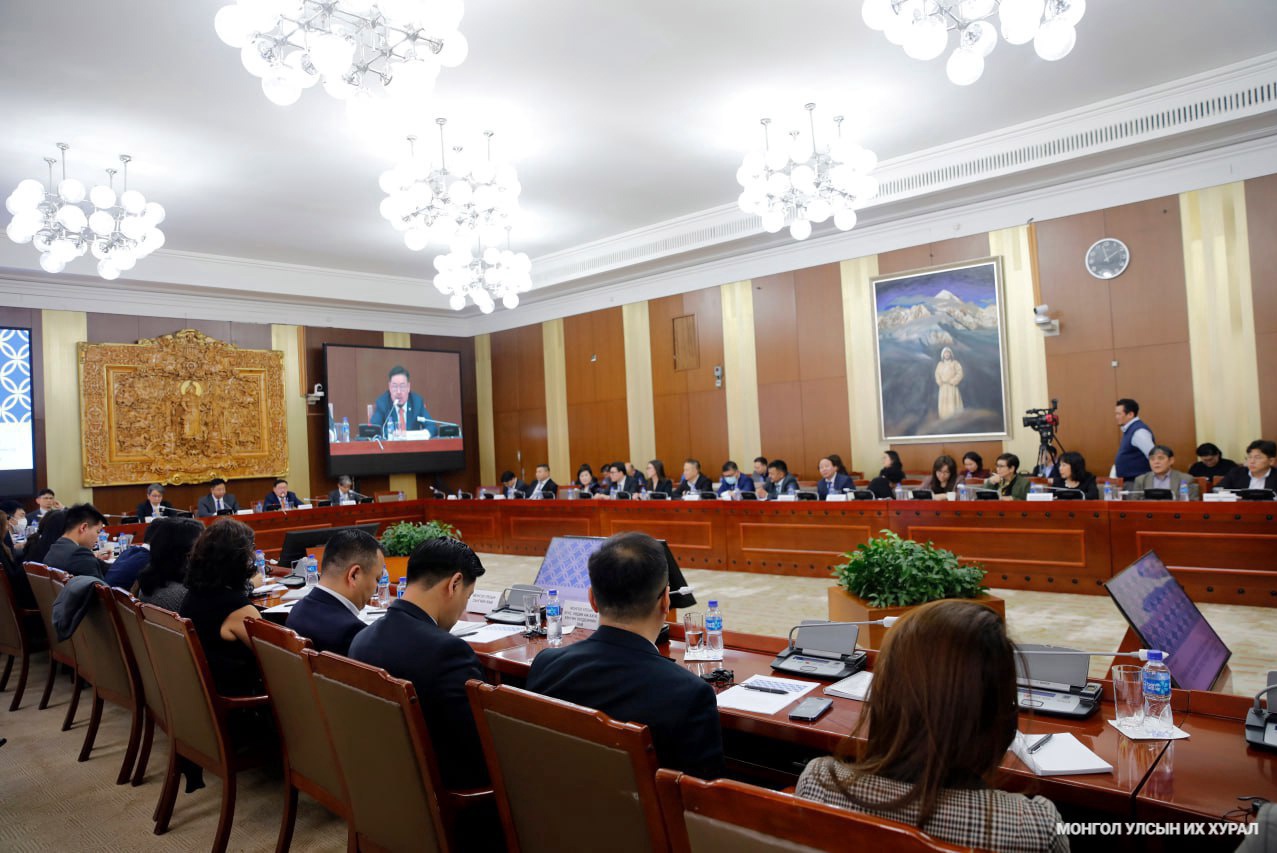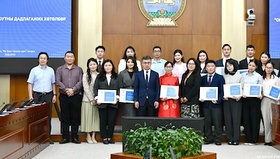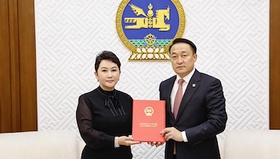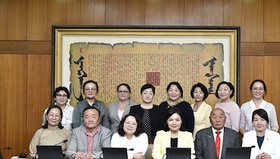At the initiative of the Chairman of the State Great Hural, G. Zandanshatar, a series of discussions entitled "Let's develop like Japan" are currently taking place for the purposes of studying Japan's development model and experiences, and adopting its best practices in Mongolia.
As part of the discussions, a meeting under the theme of “Learning from the experiences of Japan’s industrial development and policies in support of small and medium enterprises” was jointly organized by the Standing Committee on Industrialization Policy, the Standing Committee on Economy, and the Japanese International Cooperation Agency (JICA) at the Government House today (May 16, 2023). The participants include Mr.Zandanshatar, H.E.Kobayashi Hiroyuki, Ambassador Extraordinary and Plenipotentiary of Japan to Mongolia, Mr.Tanaka Shinichi, Chief Representative of JICA Mongolia Office, the members of the Standing Committee on Industrialization Policy and Standing Committee on Economy, as well as representatives from the Mongolian National Chamber of Commerce and Industry, Ministry of Finance, Ministry of Food, Agriculture and Light Industry, higher education institutions, NGOs, and small and medium enterprises.
In his opening speech, Mr.Zandanshatar thanked the organizers of the meeting and pointed out that in the 50 years since the establishment of diplomatic relations between Japan and Mongolia, the relationship between the two countries has evolved into a strategic partnership, the Japan-Mongolia Economic Partnership Agreement has been signed, and the cooperation between the two countries has been continuously expanding. Furthermore, Mr.Zandanshatar said that he initiated “Let’s develop like Japan'' to study Japan’s development model, as well as the good standards of the Asian-style economy and governance system. In this context, a series of discussions on five themes—Humanistic Education in Japan, Industrialization and the Functions of the Ministry of Economy, Trade and Industry of Japan, Budget and Investment Standards, and Civil Service System of Japan—have been organized in cooperation with JICA. The theme of today’s discussion is "Industrial Development and Small and Medium Enterprises in Japan". In Mongolia, there are almost no value-added products that are sold to other countries for foreign currency; only natural resources are being exported. This makes the country’s economy highly dependent and vulnerable to fluctuations in commodity prices. Moreover, it is the main reason why the middle class has not grown in Mongolia. The fragile economic state and import over-dependency must be overcome. Therefore, it is necessary to take decisive actions. In particular, we need to develop our industry, support business, and become an exporting country, and small and medium enterprises are important for expanding exports.
More than 90% of all industries in Japan are small and medium enterprises, and about 70% of all employed citizens work for them. Small and medium enterprises play a significant role in creating local jobs in the country.
Ambassador Kobayashi Hiroyuki said, "The Government of Japan has been implementing a policy to support small and medium enterprises through the Ministry of Economy, Trade and Industry and the Department of Small and Medium Enterprises. For Mongolia’s sustainable development, I think it is appropriate to diversify the industry and develop small and medium enterprises. I hope that Japan's experience in developing small and medium enterprises will contribute to Mongolia's development.” He also noted that Mr.Zandanshatar’s visit to Japan in March spurred the two countries’ cooperation in the next 50 years.
In 2019, the State Great Hural approved the revision of the Law on Support of Small and Medium Enterprises and Services, which clarified the scope and classification of small and medium enterprises, state regulation, support, and financing. In the future, there is a need to develop small and medium enterprises in clusters. Also, the Chair of the Standing Committee on Industrialization Policy, T. Enkhtuvshin, emphasized the importance of financial support for the development of small and medium enterprises and services during the discussion, and stated that it is necessary to study and implement good international standards in terms of improving the governance of the Small and Medium Enterprise Development Fund established for this purpose.
Mr.Tanaka Shinichi, Head of JICA Mongolia, said, "It is important to prepare human resources for small and medium enterprises aimed at developing and diversifying industry, and creating a government policy and legal environment to support business activities. After World War II, our country has become one of the world's leading economies. The basis of this success lies in the development and implementation of effective policies to support small and medium enterprises. Also, it is seen as the result of the government, private sector and research institutions working together as a whole."
Mr.Funabashi Gaku, Guest researcher at JICA Ogata Research Institute, Senior Advisor of the Private Sector Development Department of JICA and Associate professor at the International Business research department of International University of Japan, presented a report on Japan's industrial development as well as small and medium enterprises. He presented detailed information on sub-topics such as productivity factors, policy support, Japanese-style management, and policy perspectives for small and medium enterprises. In the 1940s, textiles were Japan's main export product, but by the 1970s, exports of industrial products had grown rapidly. As of today, the country's main industry is automobiles, and the country's automobile industry is slowly and steadily growing. It was presented that regardless of the level of global market demand for the types of manufacturing, the country maintains a policy of maintaining jobs in the manufacturing sector. In the 1970s, the Japanese dramatically increased investment in the sector and took measures to improve equipment for the manufacturing of new products. After that, attention was paid to the improvement of the manufacturing system, the human resources of the sector, and works were carried out to support the proposals and initiatives coming from them in the direction of improving the manufacturing system. As a result of these, the experience of the development of the automobile industry in Japan with high productivity was shared. After that, as a result of taking measures to improve the quality of each product, it made a valuable contribution to the increase in the value of the product.
For Japan, the first priority was policy support for industrial development. It lasted for 15 to 20 years. During this period, small factories that supply the automobile industry were established and started developing. The government has taken measures to increase the availability of low-cost loans to improve the equipment of these factories, aiming to improve the quality of the products and increase the productivity of the factories. In the 1950s, Japan's economic conditions were not favorable, but within the framework of its main objective, which was to purchase high-priced, high-quality equipment from countries led by the United States, the government provided policy support, such as allocating foreign currency, granting tax breaks and exemptions for the purchase of equipment. In addition, it introduced the features of small enterprises joining together and forming professional associations to get low-cost loans. Another recent example of the government's policy support for a specific industry, the successful outcome of the government's policy support for the Thai automobile industry, was also mentioned in Mr.Funabashi Gaku’s speech. The report cites examples of high growth and profitability since 2000 as a result of measures taken by the government to encourage new types of investment rather than cheap loans.
After the introduction of high-quality equipment in support of Japan's automobile industry, there was a need to support and increase competitiveness of the country’s national industries and protect the market from similar import products. Each factory, at the national level, focused particularly on increasing productivity and training specialists. At that time, under the theme "Application of Scientific Management Methods", measures were implemented to introduce the know-how of the American automobile manufacturing and industry. He said that in doing so, Japan was creating Japanese know-how in a way that it did not directly copy the American know-how, but adopted it to the country’s own characteristics. He emphasized the importance of continuous improvement in any type of manufacturing, and cited the example of a small manufacturer of nails in Japan who, as a result of long-term continuous improvement and technological advancement, became a supplier of small parts for smartphones today. Mr.Funabashi Gaku stressed that even for a small family business, the secret to success is constant improvement.
Emphasizing the importance of establishing long-term and stable relationships with suppliers for small and medium enterprises, Mr.Funabashi Gaku also pointed out that the basis of such relationships is the sustainable manufacturing of quality goods and cited relevant examples. Japan, which has had productive factories with advanced equipment since the 1970s, was unsuccessful in its attempt to implement a policy of transitioning product manufacturing into knowledge-based production. Moreover, he mentioned that he had often heard that household production is common among Mongolians, but there is a lack of cooperation between the households. "Each household may have its own unique production. However, if the households can be collaborated by organizing creative meetings, more successful ideas can be "sprouted" from them," Mr.Funabashi Gaku suggested. He also expressed the idea that in the development of small and medium enterprises, it is effective to define and implement policies that take the comprehensive development of regional economy, small and medium enterprises, and industrial development, and the "technology-management-capital" chain into equal consideration.
Following the presentation, a Q&A session was held, where the participants of the meeting asked and answered questions about the development model of small and medium enterprises, the experiences of optimal and effective implementation of financial support from the government, and appropriate involvement of the government in the sector.

 Eng
Eng  Монгол
Монгол